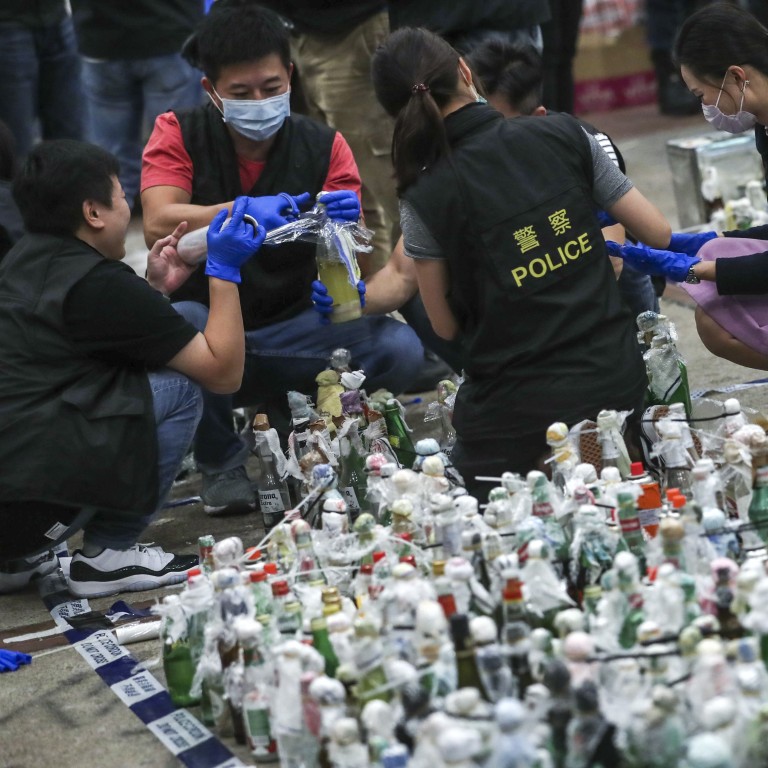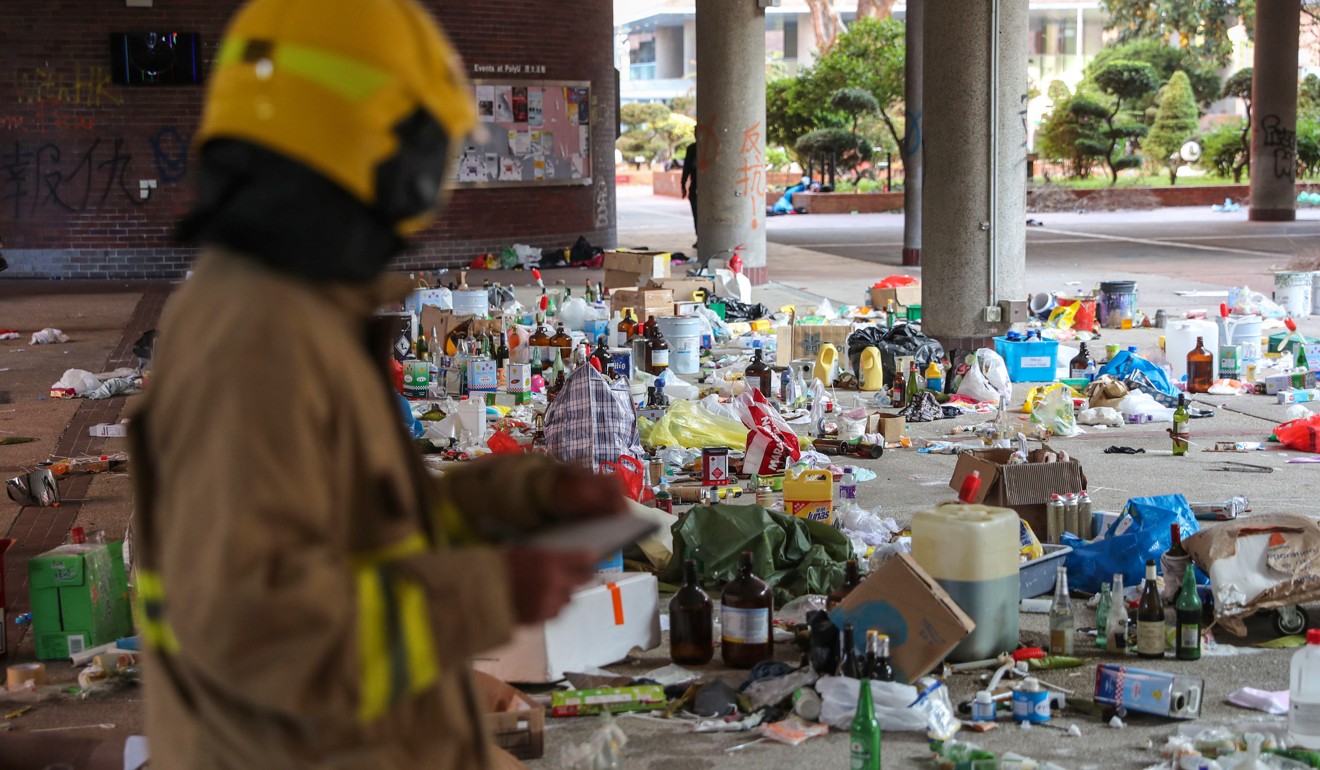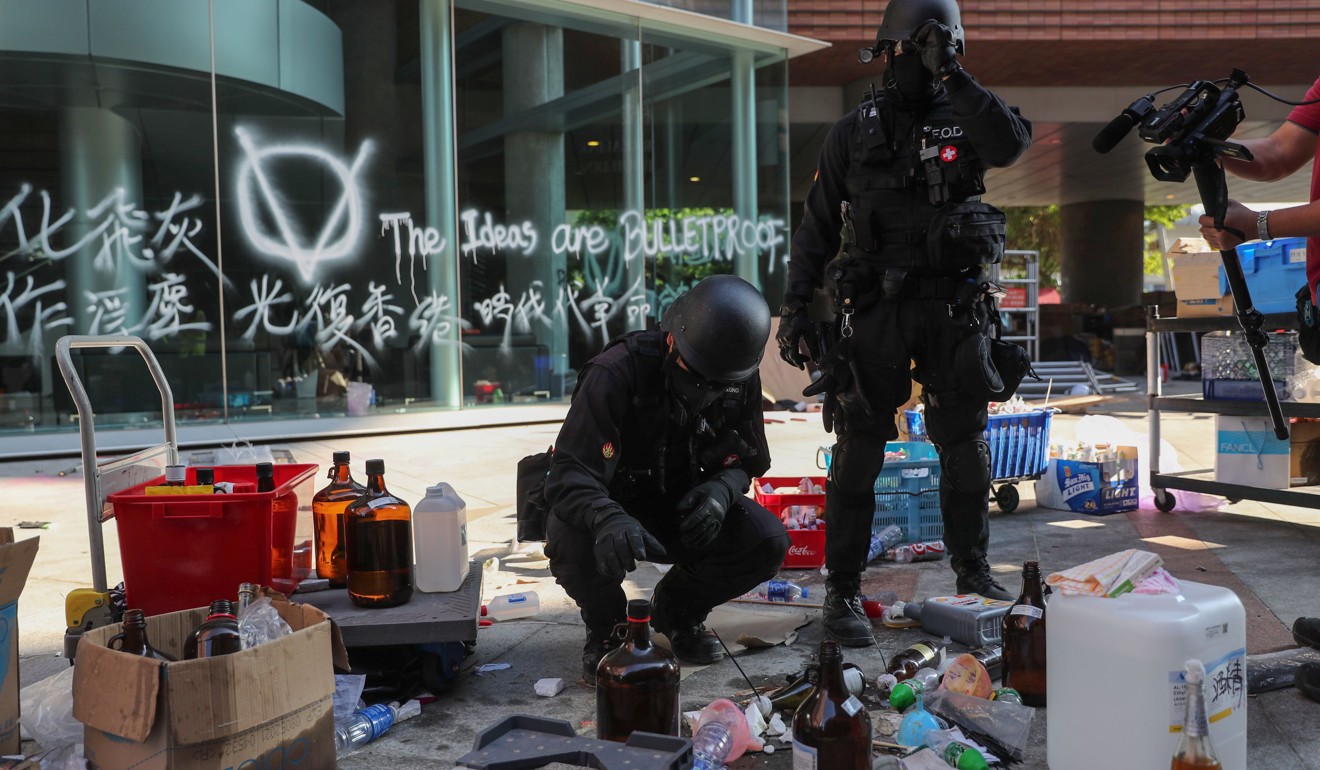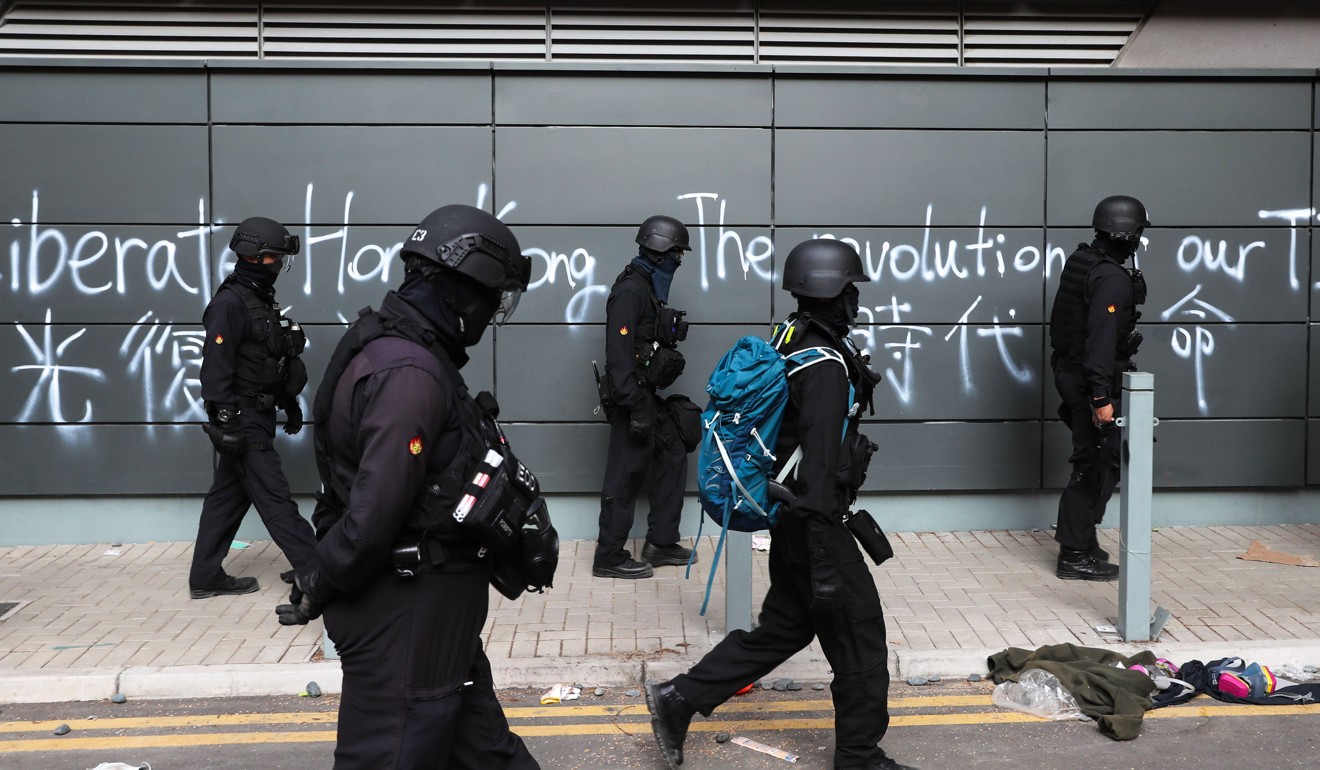
Hong Kong police seize more than 3,800 petrol bombs from Polytechnic University, saying campus siege will end on Friday
- Assistant Commissioner of Police Chow Yat-ming confident clear up operation can be finished with one more day
- Police seize petrol bombs, gas canisters and chemicals including acid and other corrosive liquids during university search
Hong Kong’s police force has said it will end its siege of Polytechnic University on Friday and revealed it had already seized more than 3,800 petrol bombs from the campus.
Assistant Commissioner of Police Chow Yat-ming on Thursday night said: “There is still some work to do and it is better we do it by daylight. However, I’m confident that we can finish it by tomorrow and return a safe campus to the university management.”
No more police officers would be stationed outside the campus and it would be reopened to the public, Chow added.
Police seized 3,801 petrol bombs, 921 gas canisters and 588 chemicals including acid and other corrosive liquids during their search of the university.
Another 100 gas canisters were tied to petrol bombs, while police also found 12 bows, 200 arrows and an air rifle.
Some 44 vehicles inside the campus car park were damaged, with protesters were believed to have stolen petrol from them.
The fire service also inspected the podium, laboratories and dangerous goods store and found a large quantity of dangerous fluids, including 550 litres of flammable liquid petrol, 20 litres of corrosive fluid and 80 litres of toxic substances.
Some 27 stores containing dangerous chemicals remained locked, which officers said was “fortunate”, but 15 fire extinguishers outside were missing.
Police did not find any remaining protesters still on campus on Thursday, but Chow stressed the policy of getting them medical treatment ahead of any arrests remained in force. Their details would be recorded for later use.
He refused to estimate the number of holdouts inside and denied police had deployed undercover officers disguised as volunteer medics to search the campus.
On Thursday, a team of 400 officers moved onto the trashed campus in Hung Hom that had earlier been turned into a fiery battlefield then a stronghold for radical protesters. It marked the final chapter of a stalemate that had lasted almost two weeks.
The search began at 8am on Thursday with just 100 officers including some from the fire service and Social Welfare Department.
Seven hours later, Senior Superintendent Li Kwai-wah reported the police’s process through a Facebook live session.
“Some items we found could be ignited at 36 degrees Celsius,” he said. “We had to dispose of them as quickly as possible.”
Officers were also hindered by slippery surfaces and obstructions placed by those who had occupied the campus, Li added.
Originally, it was expected that officers from the Organised Crime and Triad Bureau would be able to sufficiently handle the situation.
But given the latest development, Li said, an additional 300 officers were deployed from the Commercial Crime Bureau and regional crime units from various districts.
He added that officers from government laboratories were on site to give advice and conduct preliminary examinations given the variety of substances found.
During the operation, police cordoned off buildings and a few open areas suspected to contain dangerous items on the advice of firefighters, who conducted the first round of search for immediate explosives. There were none.

Earlier on Thursday, the High Court had turned down a judicial challenge against the operation.
Former government employee Kwok Cheuk-kin, a serial litigant known for taking the government to court, argued the police tactics of cordoning off the campus amounted to false imprisonment and infringed the freedom of those trapped inside.
But Mr Justice Albert Wong Sung-hau said insofar as the PolyU saga was concerned, the police had mostly exercised their power in accordance with the law, and there was no substantial evidence to suggest otherwise.
The force responded with tear gas, sealed all campus exits and asked all those inside to leave.

About 1,100 people came out in the days that followed, although some escaped. Those aged 18 or above were arrested on suspicion of rioting, while about 300 minors had their details recorded, although police reserved the right to pursue criminal cases against them later.
But an unknown number refused to leave the campus, some saying in the days that followed that they were afraid of being arrested and mistreated by police, prompting a stalemate.
By Thursday, petrol bombs, hazardous chemicals, rotting food and rubbish littered the corridors, rooms and outside spaces. Campus officials called it a hygiene and health risk.

“Our ultimate goal is to restore the safety of the school and open the campus as soon as possible,” Chow said. “We have some officers from the police negotiation centre and the Social Welfare Department, and also clinical psychologists. We will try to convince them to get medical treatment.”
Owan Li, the student representative on the university council, told a radio programme on Thursday morning it was difficult to assess how many students remained inside the campus.
He also claimed it was not dangerous inside and accused police of destroying the school’s autonomy.
A separate police source told the Post that the force was likely to grant approval for a march on Sunday.
Additional reporting by Phila Siu and Lilian Cheng


